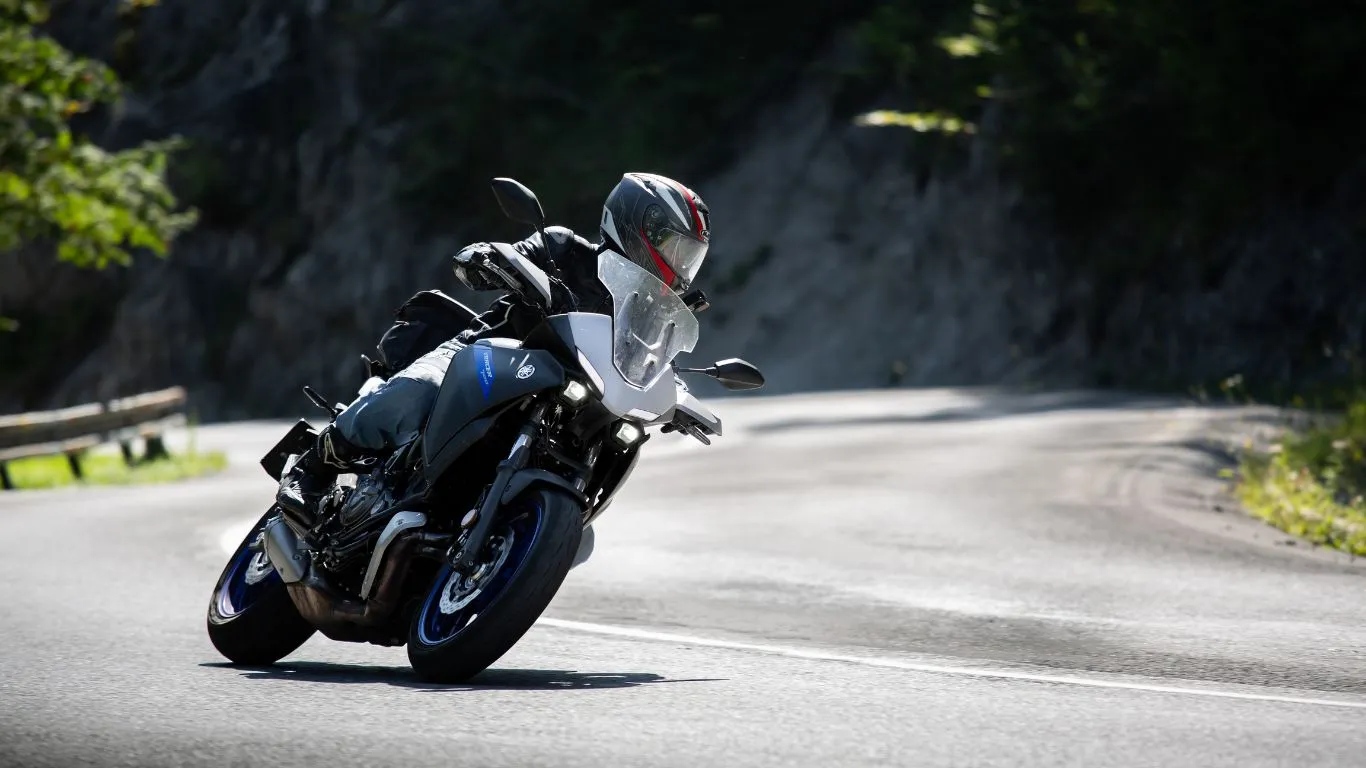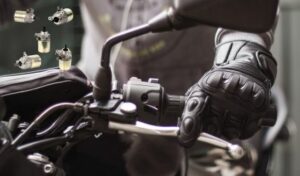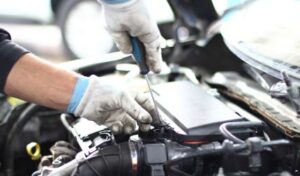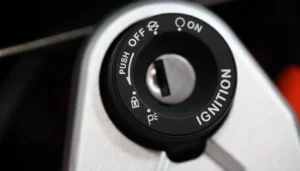Motorcycles can create a buzzing or whirring noise for a variety of reasons when you try to start them. Determining the cause can be vital to preventing more severe damage and ensuring the longevity of your bike.
The buzzing sound during startup can indicate several potential problems, each requiring careful examination to pinpoint the exact cause. One possibility is a faulty starter motor, which is responsible for initiating the engine’s rotation. A worn-out or damaged starter motor can produce an unpleasant buzzing noise instead of efficiently engaging the engine.
Another culprit could be a weak or failing battery. When the battery lacks sufficient power, the starter motor may struggle to turn the engine over, resulting in a buzzing sound. This situation might call for a battery recharge or replacement to restore the motorcycle’s electrical capacity.
Additionally, a loose or corroded connection within the electrical system can contribute to the buzzing phenomenon. Loose wiring or faulty connections can impede the smooth flow of electricity, causing irregularities during startup and generating buzzing sounds as a consequence.
To accurately diagnose and address the buzzing issue, it is advisable to consult a professional motorcycle mechanic. They possess the expertise and diagnostic tools to identify the root cause and perform the necessary repairs or replacements.
What Causes A Buzzing Sound When Starting A Motorcycle?
1. Faulty Battery
A buzzing sound when starting a motorbike often comes from a weak battery. The starter motor and ignition system are underpowered by the battery.
Signs of a Weak Battery:
Starting the bike is the most common sign of a weak battery. You might notice that the engine turns over slowly, or not at all.
A weak battery may cause dim or flickering motorcycle lights when starting.
If your motorcycle frequently needs a jump-start, it’s a clear sign that your battery might be weak or dying.
Impact on the Starting Process:
When you turn the ignition key, the battery is supposed to supply power to the starter motor and the ignition system. The starter motor will struggle or buzz if the battery can’t supply enough power.
The battery powers the ignition system too. The engine’s spark plugs may struggle to ignite fuel if the battery is weak.
Possible Solutions:
Charging a weak battery may fix it. If charging doesn’t work or the battery is old and won’t charge, replace it.
If your motorcycle’s battery keeps dying or getting weak, there might be an issue with the bike’s charging system. Here, check the alternator and voltage regulator.
If you’re unfamiliar with motorcycle maintenance, take your bike to a professional mechanic.
2. Starter Motor Issues
The starter motor starts your motorcycle. The battery powers the engine’s internal combustion. The starter motor turns the engine’s flywheel when you turn the key. The flywheel turns the pistons, spark plugs, and engine.
Common Problems That Can Cause Buzzing:
Over time, the starter motor can wear out and may not engage properly with the flywheel, which could cause a buzzing sound when you try to start the motorcycle.
A poor electrical connection between the battery and the starter motor could cause the motor to receive insufficient power. This could result in a buzzing noise when the motor tries to turn the flywheel.
The solenoid switches battery current to the starter motor when you turn the ignition. The starter motor may buzz or click if a worn or damaged solenoid cannot supply enough current.
Troubleshooting and Repair Options:
Loose or corroded connections can cause a buzzing sound. Check the connections between the battery and the starter motor, and make sure they are clean and tight.
You can use a multimeter to test the starter motor. Fix or replace it if it’s broken.
If the starter motor is working fine, the problem could be with the solenoid. It can also be tested with a multimeter, and replaced if necessary.
If you’re not sure how to fix it, take your motorbike to a mechanic. They’re equipped to diagnose and fix the issue.
3. Electrical System Problems
Motorcycle electrical systems include the battery, alternator, regulator/rectifier, starter motor, ignition system, and wiring and switches.
This system powers the bike’s ignition, lights, and other electrical components and charges the battery while running.
Potential Electrical Faults Leading to Buzzing:
Corroded, damaged, or loose wiring can create a weak or intermittent electrical connection, which might cause a buzzing sound when you attempt to start your motorcycle.
The ignition switch is a key component that can wear out over time. A failing ignition switch might not provide enough power to the starter motor, leading to a buzzing noise.
The grounding of the motorcycle’s electrical system is essential for its proper functioning. A faulty or corroded ground connection might cause various electrical issues, including a buzzing sound when trying to start the bike.
Steps to Diagnose and Fix Electrical Issues:
Inspect the wires for any visible damage, such as cracks, corrosion, or signs of burning. Also, ensure that all connections are tight and clean.
You can use a multimeter to test the ignition switch. If it’s not providing the required voltage to the starter motor, it might need to be replaced.
Check the ground wire’s connection and corrosion. If it’s faulty, clean or replace the ground wire.
Electrical issues can be hard to diagnose and fix for new motorcycle mechanics. If you can’t figure it out, take your motorbike to a mechanic.
Avoid electric shock and motorcycle electrical system damage by taking precautions when fixing electrical issues. Test and repair the electrical system with the right tools after disconnecting the battery.
4. Fuel System Issues
Typically, fuel system issues don’t directly cause a buzzing sound when starting a motorcycle. However, they can cause conditions where the starter motor, battery, or other components work harder than usual, potentially leading to unusual sounds.
The starter motor and battery may strain if the fuel system doesn’t deliver enough fuel to the engine. The fuel pump can buzz or whine if it’s failing or working hard due to a clogged fuel filter.
Diagnosing and Addressing Fuel System-Related Buzzing:
If the engine doesn’t start easily or takes longer than usual to start, it might be due to a problem with the fuel system.
Listen for the fuel pump with the ignition on but the engine off. If it’s buzzing or whining, it might be due to a problem with the pump itself or the fuel filter.
A clogged fuel filter can make the fuel pump work harder than usual, potentially leading to a buzzing sound. Replace clogged filters.
Although less likely, buzzing or clicking sounds can sometimes be attributed to faulty fuel injectors.
If you can’t identify a fuel system issue, take your motorcycle to a professional. Professional mechanics can identify and fix fuel system issues.
Working with fuel, which is highly flammable, requires safety precautions. If you’re new to motorcycle maintenance, leave fuel system issues to the pros.
5. Engine-Related Problems
While a buzzing sound is often related to the electrical system or the starter motor when trying to start a motorcycle, certain engine components can also produce similar noises.
For example, issues with the timing chain, valves, or other moving parts within the engine can result in unusual noises. In some cases, worn-out or insufficiently lubricated parts may make a buzzing or grinding noise.
Identifying Engine-Related Buzzing Sounds:
If the timing chain is worn or loose, it can create a buzzing or rattling sound, especially during startup. This is usually more of a continuous noise rather than a single buzz or click.
Valves that are not properly adjusted can also create unusual sounds. However, this would likely be more of a ticking or tapping noise rather than a buzz.
Insufficient lubrication can cause parts to rub, causing a buzzing or grinding sound. If you hear such a noise and your oil level is low or hasn’t been changed recently, this may be the problem.
If you think the engine is buzzing, get professional help. Repairing engine parts requires expertise and tools. Professional mechanics can inspect, diagnose, and fix problems. Engine issues should be addressed immediately to avoid costly damage.
Steps to troubleshoot and resolve the buzzing sound
Preliminary Checks and Observations:
1. Inspect the Battery:
Check if the battery terminals are corroded or loose. Also, check the condition of the battery itself for any visible damage or leaks.
2. Examine the Wiring:
Look at the condition of the wires connecting the battery, starter motor, and ignition system. Check for any visible damage, such as frayed wires, burnt spots, or corrosion.
3. Observe the Lights:
Watch the headlight and other lights on your motorcycle when you attempt to start it. If the lights dim significantly or flicker, it could indicate a weak battery or an electrical issue.
Listening for Specific Sounds:
1. Buzzing or Clicking:
Listen carefully when you attempt to start the motorcycle. A single click might indicate a problem with the starter motor, while repeated clicking or buzzing could be a sign of a weak battery.
2. Grinding or Whining:
These sounds might indicate a problem with the starter motor engaging the flywheel.
3. Engine Noise:
Unusual noises from the engine area, like ticking, tapping, or rattling, might indicate internal engine issues. These could be more serious and require immediate professional attention.
These checks and observations are just the first step in diagnosing the problem. Depending on what you find, you might need to perform further tests or consult a professional mechanic. Be sure to take safety precautions when working with the motorcycle’s electrical and mechanical systems.
Battery and Electrical System Checks
A multimeter will test battery voltage. Set it to DC voltage and connect the red and black probes to the positive and negative terminals. Fully charged 12-volt motorcycle batteries read 12.6 volts. A low reading may indicate a weak battery. If charging doesn’t restore voltage, replace the battery.
Check the fuses for any that are blown or damaged. A blown fuse is often easy to identify by a visible break or burn mark in the metal strip inside the fuse.
You can also use a multimeter to test the fuses: set the multimeter to continuity mode and touch the probes to the two ends of the fuse. If the multimeter beeps or shows a reading close to zero, the fuse is good. If it shows a high reading or no reading at all, the fuse is blown and needs to be replaced.
Look for loose, corroded, or damaged wiring, particularly at connections between components.
Check the battery terminals, the connections to the starter motor, and other key points in the ignition system. Loose or corroded connections can prevent the proper flow of electricity, causing issues like a buzzing sound when trying to start the motorcycle.
These checks can identify common issues, but motorcycle electrical systems can be complex and require professional tools and expertise to diagnose. If these checks don’t find the problem, consult a mechanic. Avoid shock and short circuits by disconnecting the battery before electrical repairs.
Starter Motor Examination
Begin by locating the starter motor – it is usually near the engine and has a large wire running from the battery to it. Look for visible signs of damage such as burns, corrosion, or loose wires. Listen for unusual noises when you try to start the motorcycle; a malfunctioning starter motor might make a clicking or grinding noise.
Also, try to feel for excessive heat from the starter motor after attempting to start the bike. Overheating could indicate that the motor is working too hard, possibly due to internal damage or wear.
Replace a damaged starter motor. Cleaning may be enough if it’s dirty or mildly corroded. To remove dirt and corrosion from the starter motor, use a wire brush without damaging wires or connections.
A mechanic should clean inside the starter motor. The motor is disassembled, cleaned, and reassembled.
Disconnect the battery before working on the starter motor or other motorcycle electrical components. If you’re not comfortable working on these parts or cleaning the starter motor doesn’t fix it, take your motorcycle to a mechanic. They can safely diagnose and fix these issues.
Professional Assistance and Repair
There are several situations where you might need to seek professional help:
- If you’ve checked the common causes of a buzzing sound (like the battery, starter motor, and wiring) and haven’t been able to identify the problem, a professional mechanic can perform a more thorough diagnosis.
- If the problem lies with a complex component (like the engine or the inside of the starter motor), professional repair is typically needed due to the specialized knowledge and tools required.
- Consult a professional if you’re not comfortable working on motorcycles or unsure about any part of the diagnostic or repair process. If done incorrectly, motorcycle electrical and mechanical repairs can be dangerous.
Conclusion
Motorcycle buzzing when starting can be caused by many things. The most common ones are a weak battery, starter motor issues, and electrical system issues like faulty wiring or an ignition switch. Fuel system or engine issues may cause the buzzing.
Preventing problems and keeping your motorbike running smoothly requires regular maintenance and inspections. Regularly check the battery voltage, starter motor and bike wiring. Engine servicing and checks can also prevent serious internal engine issues.
If your motorbike buzzes when you start it, don’t ignore it. If you don’t fix this sound, it could cause more damage. Use the troubleshooting steps here as a starting point, but don’t hesitate to seek professional help if the problem persists. It’s okay to ask for help maintaining your motorbike. Safety and function should always come first.






